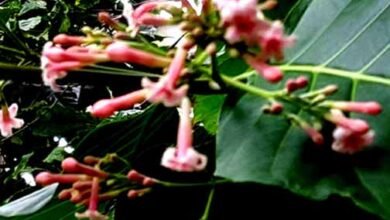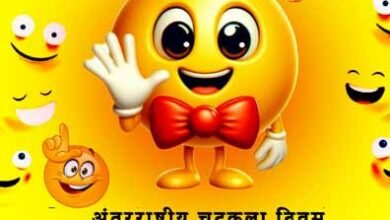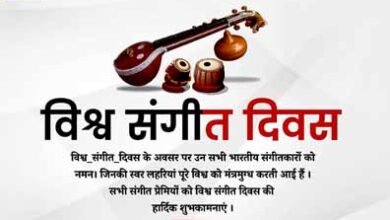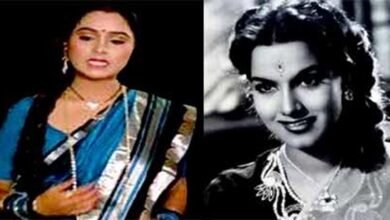
स्वर सम्राज्ञी लता मंगेशकर
भारत की ‘नाइटिंगेल’ के नाम से दुनियाभर में मशहूर लता मंगेशकर की आज पहली पुण्यतिथि है. बीते साल आज ही के दिन (06-02-2022) लता ने इस दुनिया को अलविदा कह दिया था. लता मंगेशकर ने करीब पांच दशक तक हिंदी सिनेमा में फीमेल प्ले बैक सिंगिंग में एकछत्र राज किया. उन्हें देश के सर्वोच्च नागरिक सम्मान भारत रत्न से भी नवाजा जा चुका है. इसके अलावा उन्हें पद्म भूषण, पद्म विभूषण और दादा साहेब फाल्के पुरस्कार से भी सम्मानित किया जा चुका है.
लता का जन्म 28 सितंबर 1929 को मध्य प्रदेश के इंदौर शहर के गोमंतक मराठा समाज परिवार में हुआ था. उनके पिता का नाम पंडित दीनानाथ मंगेशकर था. लता की माता का नाम शेवन्ती देवी था. जो कि मूल रूप से गुजराती थी. शेवन्ती देवी दीनानाथ मंगेशकर की दूसरी पत्नी थी. इनकी पहली पत्नी का नाम नर्मदा देवी थी जिनकी मृत्यु के बाद इनकी शादी नर्मदा देवी की छोटी बहन सेवंती देवी से हुआ था. पंडित दीनानाथ मंगेशकर की सबसे बड़ी बेटी लता मंगेशकर थी. लता के बचपन का नाम हेमा था. लता के पिता रंगमंच एलजी के कलाकार और गायक थे. हालाँकि लता का जन्म इंदौर में हुआ था लेकिन उनकी परवरिश महाराष्ट्र मे हुई. वह बचपन से ही गायिका बनना चाहती थीं.
बताते चलें कि, पंडित दीनानाथ का सरनेम हार्डीकर था. दीनानाथ ने अपना सरनेम बदलकर मंगेशकर रख लिया था क्योंकि पंडित दीनानाथ जी गोवा में मंगेशी के रहने वाले थे इसी कारण उन्होनें अपना सरनेम बदल लिया था. लता जी के जन्म के समय इनका नाम हेमा था लेकिन पंडित दीनानाथ जी ने अपने नाटक “भावबंधन“ में एक महिला किरदार जिसका नाम लतिका था उस नाम के कारण हेमा का नाम लता रखा. लता के परिवार से भाई हृदयनाथ मंगेशकर और बहनों उषा मंगेशकर, मीना मंगेशकर और आशा भोंसले सभी ने संगीत को ही अपनी आजीविका के लिये चुना.
लता की संगीत शिक्षा उनके घर से ही शुरू हुई थी, चुकी उनके पिता खुद ही संगीतकार थे और बच्चों को संगीत की शिक्षा भी देते थे. उनकी प्रारंभिक शिक्षा घर से ही शुरू हुई थी. उनके संगीत के शिक्षक दीनानाथ मंगेशकर (पिता), उस्ताद अमानत अली खान, गुलाम हैदर, अमानत खान देवस्वाले और पंडित तुलसीदास शर्मा थे.
बचपन में कुन्दन लाल सहगल की एक फ़िल्म चंडीदास देखकर उन्होने कहा था कि वो बड़ी होकर सहगल से शादी करेगी. पहली बार लता ने वसंग जोगलेकर द्वारा निर्देशित एक फ़िल्म कीर्ती हसाल के लिये गाया था. उनके पिता नहीं चाहते थे कि लता फ़िल्मों के लिये गाये इसलिये इस गाने को फ़िल्म से निकाल दिया गया. लेकिन उसकी प्रतिभा से वसंत जोगलेकर काफी प्रभावित हुये थे.
लता जब 13 वर्ष की थी तभी उनके पिता की असामयिक मृत्यु हो गई, जिसके बाद पैसों की बहुत किल्लत झेलनी पड़ी और काफी संघर्ष करना पड़ा. उन्हें अभिनय बहुत पसंद नहीं था लेकिन पैसों के लिये उन्हें कुछ हिन्दी और मराठी फिल्मों में काम करना पड़ा. अभिनेत्री के रूप में उनकी पहली फिल्म पाहिली मंगलागौर (1942) रही, जिसमें उन्होंने स्नेहप्रभा प्रधान की छोटी बहन की भूमिका निभाई. बाद में उन्होंने कई फ़िल्मों में अभिनय किया जिनमें, माझे बाल, चिमुकलासंसार (1943), गजभाऊ (1944), बड़ीमाँ (1945),जीवनयात्रा (1946), माँद (1948), छत्रपति शिवाजी (1952) शामिल थी.
पिता के देहांत के बाद भाई बहिनों में बड़ी होने के कारण परिवार की जिम्मेदारी का बोझ भी उनके कंधों पर आ गया था. दूसरी ओर उन्हें अपने करियर की तलाश भी थी. जिस समय लताजी ने (1948) में पार्श्वगायिकी में कदम रखा. जिस वक्त उन्होंने पार्श्वगायिकी में कदम रखा था उस वक्त इस क्षेत्र में नूरजहां, अमीरबाई कर्नाटकी, शमशाद बेगम और राजकुमारी आदि की तूती बोलती थी. ऐसे में उनके लिए अपनी पहचान बनाना इतना आसान नही था. लता का पहला गाना एक मराठी फिल्म कीति हसाल के लिए था, मगर वो रिलीज नहीं हो पाया.
वर्ष 1945 में उस्ताद ग़ुलाम हैदर (जिन्होंने पहले नूरजहाँ की खोज की थी) अपनी आनेवाली फ़िल्म के लिये लता को एक निर्माता के स्टूडियो ले गये जिसमे कामिनी कौशल मुख्य भूमिका निभा रही थी, वे चाहते थे कि लता उस फ़िल्म के लिये पार्श्वगायन करे. लेकिन गुलाम हैदर को निराशा हाथ लगी. वर्ष 1947 में वसंत जोगलेकर ने अपनी फ़िल्म आपकी सेवा में में लता को गाने का मौका दिया. इस फ़िल्म के गानों से लता की खूब चर्चा हुई. इसके बाद लता ने मज़बूर फ़िल्म के गानों “अंग्रेजी छोरा चला गया” और “दिल मेरा तोड़ा हाय मुझे कहीं का न छोड़ा तेरे प्यार ने”.
हालाँकि इसके बावज़ूद लता को उस खास हिट की अभी भी तलाश थी. वर्ष 1949 में लता को ऐसा मौका फ़िल्म “महल” के “आयेगा आनेवाला” गीत से मिला. इस गीत को उस समय की सबसे खूबसूरत और चर्चित अभिनेत्री मधुबाला पर फ़िल्माया गया था. इसके बाद लता ने कभी पीछे मुड़कर नहीं देखा.बताते चलें कि, लता मंगेशकर ने अब तक 20 से अधिक भाषाओं में 30000 से अधिक गाने गा चुकी.
50 के दशक में लता जी महान संगीतकारों के साथ काम किया जिसमें अनिल बिस्वास, एस डी बर्मन, जय किशन, मदनमोहन और नौशाद अली शामिल थे. लता जी ने नौशाद अली के लिए बैजू बावरा, कोहिनूर और मुगल-ए-आजम फिल्मों में बेहतरीन और सदाबहार गानें गायें. इसके अलावा लता जी ने एस डी बर्मन के लिए फिल्म साजा, देवदास और हाउस न0 420 के लिए गाना गाया. लता जी एस डी बर्मन की पसंदीदा पार्श्वगायिका थी. शंकर-जयकिशन के लिए लता जी ने फिल्म आह, श्री 420 और चोरी-चोरी के लिए बेहतरीन गानें गायें.
60 के दशक में लता जी ने कई सदाबहार गीत गायें जो इस प्रकार है :-
सुनो सजना पपीहे ने, न जाने तुम कहाँ थे, महबूब मेरे महबूब मेरे, हमने देखी है इन आँखों की, वो शाम कुछ अजीब थी, आया सावन झूमके जैसे गानें गायें. किशोर दा के साथ लता जी ने एक सुपरहिट गाना गाया था जो आज भी लोंगों को आकर्षित करता है वह गाना है होठों पे ऐसी बात और इसके अलावा आज फिर जीने की तमन्ना है, गाता रहे मेरा दिल आदि गानें किशोर दा के ही थे जिसको लता जी ने अपनी सुरीली आवाज में गाकर अमर कर दिया.
70-80 के दशक में जो गाने गायें वह है :-
गुम है किसी के प्यार में (रामपुर का लक्ष्मण), वादा करो नहीं छोड़ोगे तुम मेरा साथ (आ गले लग जा), वादा कर ले साजना (हाथ की सफाई), नहीं नही अभी नहीं (जवानी दीवानी), तेरे बिना जिंदगी से कोई शिकवा तो नहीं (आँधी), मै जट यमला पगला दीवाना (प्रतिज्ञा), जाते हो जाने जाना (परवरिश), आज फिर तुम पे प्यार आया (दयावान), तुमसे मिलकर ना जाने क्यों (प्यार झुकता नहीं), जब हम जवां होगें (बेताब) जैसी फिल्मों में गाना गाया. इन दशकों में लता जी ने लक्ष्मीकांत प्यारेलाल, मदनमोहन, सलील चौधरी और हेमन्त कुमार जैसे महान संगीतकारों के साथ काम किया.
90 से अब तक का सफर में लता जी ने कई संगीतकारों के साथ काम किया. अस्सी के दशक में शिवहरि, अनु मलिक, आनंद मिलिंद, जैसे संगीतकारों ने भी लता जी के साथ काम करना पसंद किया. लता जी ने फिल्म वीर जारा (2004) में गाने के बाद गाने से संयास ले लिया.
फ़िल्म बंदिनी का गाना ‘मोरा गोरा अंग लेइलो.‘
फ़िल्म अनुपमा का वो गाना –‘कुछ दिल ने कहा, कुछ भी नहीं…‘
फ़िल्म अनामिका का – ‘बाहों में चले आओ‘
फ़िल्म इंतकाम –‘आ जाने जा, तेरा ये हुसन जवाँ‘
विशेष :- राष्ट्र कवि प्रदीप जी ने ये शब्द “ऐ मेरे वतन के लोगों, जरा आँख में भर लो पानी, जो शहीद हुए है उनकी, जरा याद करो कुर्बानी” इन शब्दों को लता जी ने अपनी आवाज दी थी जिससे यह गाना सदा सदा के लिए अमर हो गया.इस गीत को लता ने पहली बार 27 जनवरी, 1963 को दिल्ली के नेशनल स्टेडियम में गाया था.
पुरस्कार:-
वर्ष 1958, 1962, 1965, 1969, 1993, 1994 – फिल्म फेयर पुरस्कार.
वर्ष 1972, 1975, 1990 – राष्ट्रीय पुरस्कार,
वर्ष 1966,1967 – महाराष्ट्र सरकार पुरस्कार,
वर्ष 1969 – पद्म भूषण,
वर्ष 1974 – दुनिया में सबसे अधिक गीत गाने का गिनीज़ बुक रिकॉर्ड,
वर्ष 1989 – दादा साहब फाल्के पुरस्कार,
वर्ष 1993 – फिल्म फेयर का लाइफ टाइम अचीवमेंट पुरस्कार,
वर्ष 1996 – स्क्रीन का लाइफटाइम अचीवमेंट पुरस्कार,
वर्ष 1997 – राजीव गान्धी पुरस्कार,
वर्ष 1999 – एन.टी.आर. पुरस्कार,
वर्ष 1999 – पद्म विभूषण,
वर्ष 1999 – ज़ी सिने का लाइफटाइम अचीवमेंट पुरस्कार,
वर्ष 2000 – आई. आई. ए. एफ. का लाइफटाइम अचीवमेंट पुरस्कार,
वर्ष 2001 – स्टारडस्ट का लाइफटाइम अचीवमेंट पुरस्कार,
वर्ष 2001 – भारत का सर्वोच्च नागरिक सम्मान “भारत रत्न”
वर्ष 2001 – नूरजहाँ पुरस्कार,
वर्ष 2001 – महाराष्ट्र भूषण.
========= ======== ==========
Lata Mangeshkar, known worldwide as India’s ‘Nightingale’, ruled the female playback singing in Hindi cinema for almost five decades. He has also been awarded the country’s highest civilian honor, Bharat Ratna. Apart from this, he has also been honored with Padma Bhushan, Padma Vibhushan, and Dadasaheb Phalke Awards.
Lata was born on 28 September 1929 in the Gomantak Maratha Samaj family of Indore city of Madhya Pradesh. His father’s name was Pandit Deenanath Mangeshkar. Lata’s mother’s name was Shevanti Devi. Which was originally Gujarati. Shevanti Devi was the second wife of Dinanath Mangeshkar. His first wife’s name was Narmada Devi, after whose death he was married to Narmada Devi’s younger sister Sevanti Devi. Lata Mangeshkar was the eldest daughter of Pandit Deenanath Mangeshkar. Lata’s childhood name was Hema. Lata’s father was an artist and singer of Theater LG. Although Lata was born in Indore, she was brought up in Maharashtra. She wanted to become a singer since childhood.
Let us tell you that the surname of Pandit Dinanath was Hardikar. Dinanath changed his surname to Mangeshkar because Pandit Deenanath ji was a resident of Mangeshi in Goa, which is why he changed his surname. At the time of Lata ji’s birth, her name was Hema, but Pandit Dinanath ji named Hema Lata because of the name of a female character named Latika in his play “Bhavbandhan”. Brother Hridaynath Mangeshkar and sisters Usha Mangeshkar, Meena Mangeshkar, and Asha Bhosle from Lata’s family all chose music as their livelihood.
Lata’s music education started at her home itself, her father was a musician himself and used to teach music to children. His early education started at home. His music teachers were Deenanath Mangeshkar (father), Ustad Amanat Ali Khan, Ghulam Haider, Amanat Khan Devswale, and Pandit Tulsidas Sharma.
In childhood, after watching the film Chandidas by Kundan Lal Sehgal, she said that she would marry Sehgal when she grows up. For the first time, Lata sang for the film Keerti Hasal directed by Vasant Joglekar. Her father did not want Lata to sing for films, so this song was removed from the film. But Vasant Joglekar was greatly impressed by his talent.
When Lata was 13 years old, her father died untimely, after which she had to face a lot of money shortages and had to struggle a lot. He did not like acting very much but for money, he had to work in some Hindi and Marathi films. Her first film as an actress was Pahili Mangalagour (1942), in which she played the younger sister of Snehaprabha Pradhan. He later acted in many films including Majhe Baal, Chimukalasansar (1943), Gajabhau (1944), Badimaa (1945), Jeevan Yatra (1946), Maand (1948), Chhatrapati Shivaji (1952).
After the father’s death, being the eldest among siblings, the burden of family responsibility also fell on her shoulders. On the other hand, he was also looking for his career. When Lataji stepped into playback singing in (1948). At the time when she stepped into playback singing, Noorjahan, Ameerbai Karnataki, Shamshad Begum and Rajkumari, etc. used to speak in this field. In such a situation, it was not so easy for him to make his identity. Lata’s first song was for a Marathi film Keeti Hasal, but it could not be released.
In the year 1945, Ustad Ghulam Haider (who had earlier discovered Noor Jehan) took Lata to a producer’s studio for his upcoming film starring Kamini Kaushal, he wanted Lata to do playback singing for that film. But Ghulam Haider was disappointed. In the year 1947, Vasant Joglekar gave Lata a chance to sing in his film Aapki Seva Mein. Lata was discussed a lot in the songs of this film. After this, Lata sang the songs “Angrezi Chhora Chala Gaya” and “Dil Mera Toda Hai Mujhe Kahin Ka Na Chhoda Tere Pyar Ne” from Mazboor. However, despite this, Lata was still looking for that special hit.
In the year 1949, Lata got such an opportunity with the song “Aayega Aanewala” from the film “Mahal”. This song was picturized with Madhubala, the most beautiful and famous actress of that time. After this Lata never looked back. Let us tell you that Lata Mangeshkar has sung more than 30000 songs in more than 20 languages.
In the 50s, Lata ji worked with great musicians including Anil Biswas, SD Burman, Jai Kishan, Madan Mohan, and Naushad Ali. Lata ji sang the best and evergreen songs for Naushad Ali in the films Baiju Bawra, Kohinoor, and Mughal-e-Azam. Apart from this, Lata ji sang for SD Burman in the films Saaja, Devdas, and House No. 420. Lata was the favorite playback singer of GSD Burman. For Shankar-Jaikishan, Lata ji sang the best songs for the films Aah, Shree 420, and Chori-Chori.
In the 60s, Lata ji sang many evergreen songs which are as follows:-
Listen Sajna Papihe, don’t know where you were, my lover, my lover, we have seen these eyes, that evening was somewhat strange, Aaya Sawan sings songs like Jhoomke. Lata ji sang a superhit song with Kishore da which attracts people even today, that song is Hothon pe aisi baat and apart from this, Aaj phir jeene ki tamanna hai, Gaata rahe mera dil, etc. songs were of Kishore da only to whom Lata Ji made him immortal by singing in his melodious voice.
The songs he sang in the 70-80s are:-
Is lost in someone’s love (Laxman of Rampur), Promise me you will not leave my company (Aa hug me), Promise take me (Cleaning of hands), Nahi nahi abhi nahi (Jawani Deewani), no one from life without you Shikwa to nahi (Aandhi), Main Jat Yamla Pagla Deewana (Pledge), Jaate ho jaane jaana (Parvarish), Aaj phir tum pe pyar aaya (Dayawan), Tumse se meet na jaane kyun (Love does not bow down), When we are young ( Sung in films like Betaab. In these decades, Lata ji worked with great musicians like Laxmikant Pyarelal, Madan Mohan, Salil Chowdhary, and Hemant Kumar.
In her journey from 90 till now, Lata ji worked with many musicians. Musicians like Shivhari, Anu Malik, and Anand Milind, also preferred to work with Lata ji in the eighties. Lata ji retired from singing after singing in the film Veer Zara (2004).
The song ‘Mora Gora Ang Leilo’ from the film Bandini.
That song from the movie Anupama – ‘Kuch Dil Ne Kaha, Kuch Bhi Nahin…’
From the movie Anamika – ‘Come in my arms
Film Intekaam – ‘Aa Jaane Jaa, Tera Yeh Hussan Jawaan’
Important:- National Poet Pradeep ji had given her voice to these words “O people of my country, just fill your eyes with water, just remember the sacrifice of those who have been martyred”, due to which this song will always be sung. Amar ho gaya for. This song was first sung by Lata on January 27, 1963, at the National Stadium in Delhi.
Prize:-
The Years 1958, 1962, 1965, 1969, 1993, and 1994 – Filmfare Awards.
The Year 1972, 1975, 1990 – National Award,
The Year 1966,1967 – Maharashtra Government Award,
The Year 1969 – Padma Bhushan,
The Year 1974 – Guinness Book Record for singing the most number of songs in the world,
Year 1989 – Dadasaheb Phalke Award,
The Year 1993 – Life Time Achievement Award of Filmfare,
The Year 1996 – Lifetime Achievement Award of Screen,
The Year 1997 – Rajiv Gandhi Award,
The Year 1999 – N.T.R. Prize,
The Year 1999 – Padma Vibhushan,
The Year 1999 – Zee Cine’s Lifetime Achievement Award,
The Year 2000 – I.I.A. F. Lifetime Achievement Award,
The Year 2001 – Stardust’s Lifetime Achievement Award,
The Year 2001 – India’s highest civilian honor “Bharat Ratna”
The Year 2001 – Noorjahan Award,
The Year 2001 – Maharashtra Bhushan.





